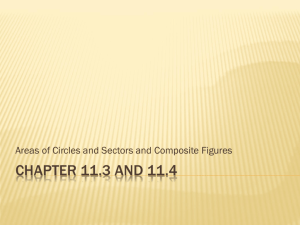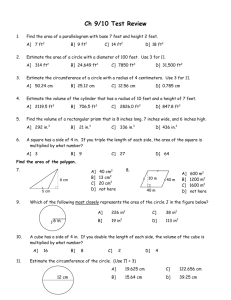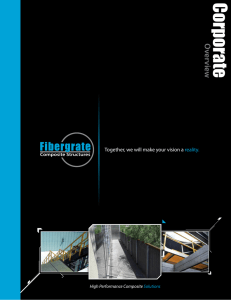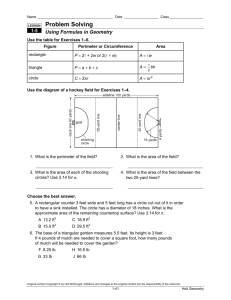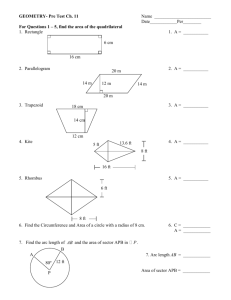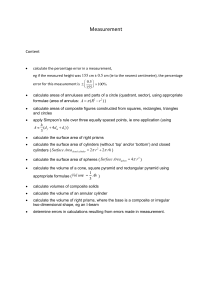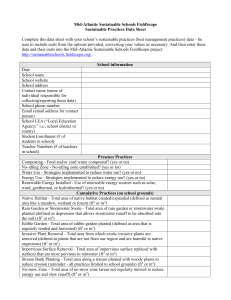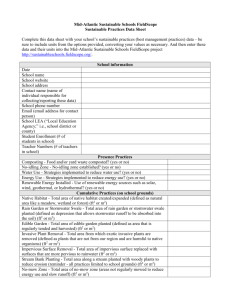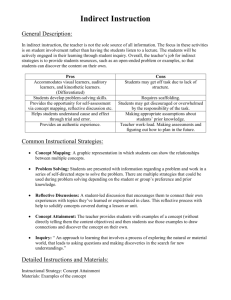1.7 Composite Figures
advertisement
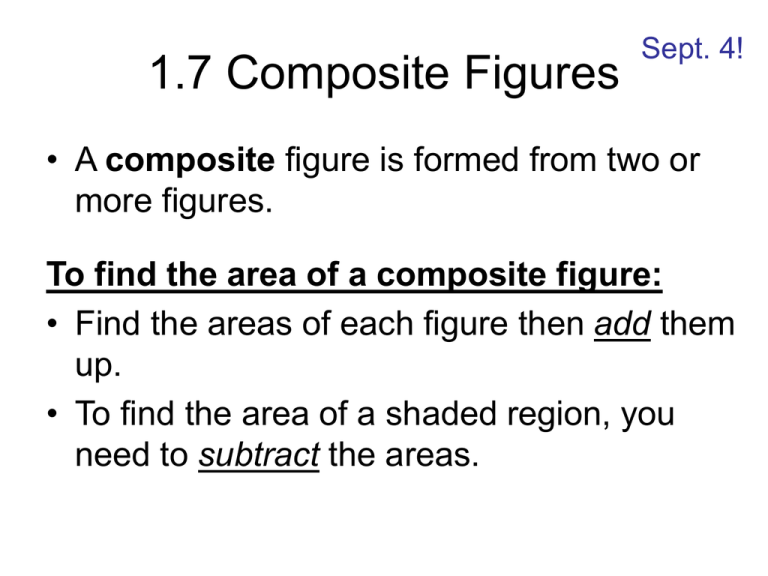
1.7 Composite Figures Sept. 4! • A composite figure is formed from two or more figures. To find the area of a composite figure: • Find the areas of each figure then add them up. • To find the area of a shaded region, you need to subtract the areas. Example #1: Find the area of the composite figure. The composite figure contains 2 triangles and 1 square. We need to find the area of each region. Area of square: Area of 1 triangle: A = ½ bh A = ½ (7)(4) A = ½ (28) A = 14 yds2 A = lw = 7(7) = 49 yd2 Total area of figure: Add up areas of 2 triangles and square: A = 2(14) + 49 = 28 + 49 = 77 yd2. Example #2: Find the area of the figure. The figure contains: 3 ft. 1 square and a semicircle Area of square: A = lw = 6(6) = 36 ft2 Total area of figure: Area of circle: A = r2 A = (3)2 = 9 ft2 Area of semicircle = ½ (9) = 4.5 ft2 Add areas of square and semicircle: A = 36 + 4.5 cm2 • Example #3: Find the area of the shaded d = 8 ft. region if the area of the square is 64 ft2. • We are given the area of • Area of shaded the square, we need to region = find the area of the circle. • Area of square – • What is its radius? Area of circle • Diameter = Length of • A = 64 - 16 ft2. square = 64= 8 ft. • Radius = ½ (8) = 4 ft. • Area of circle: • A = r2 • A = (4)2 = 16 ft2. QUIZ Show your work! 1. Find the area of the entire figure below. 20 cm 2. Find the area of the shaded region above.

